- Jake Worthington at Faster Horses Festival: A Preview
- The Faster Horses Festival: A Preview of Michigan’s Premier Country Music Extravaganza
- Ryan Bingham at Extra Innings Festival
- Morgan Wade at Extra Innings Festival, 2024
- Sheryl Crow wows fans at Extra Innings
- Country Music Legend Toby Keith passes at age 62
How Nike Sparked the Sellout “Revolution”
In 1987 Nike licensed the Beatles song “Revolution” for one of its television ads. The cost to Nike was $500,000, to be split between the two companies who controlled the rights to the song: Capitol EMI and ATV Publishing. Yoko Ono, a shareholder in the Beatles’ record company Apple, had (unbeknownst to the Beatles) encouraged Capitol EMI to pursue the use of the song. Her bizarre reasoning was that it would introduce John Lennon to a whole new generation. Ono could not have been thinking clearly, because Lennon’s ideals were dead set against such mismatching of art and commerce – especially when it had to do with falsely harnessing an anthem to make money. And if any song embodied the hippie ideal of the ’60s, it was “Revolution.” Therefore, Nike in its pursuit of this song were clearly trying to channel the idealism of the ’60s to re-energize those disenchanted with the corporatized ’80s. The three surviving Beatles (none of whom had full ownership of the song’s publishing rights anymore) filed a lawsuit against the use of the song, but later settled out of court for an undisclosed sum once the fight proved futile.
The use of such an iconic piece of music in a commercial ad was seen as both a milestone in commercialism and a harbinger of things to come. Even though the Beatles fought tooth and nail to have this deal shut down, other artists nevertheless took the inclusion of a Beatles song in an ad as the okay signal for selling out. Up until this point, high-profile artists of integrity generally shied away from using their songs in high-profile ads for fear of artistic backlash from peers or fan revolt. It was the general consensus that music listeners did not want their prized personal anthems used to express commercially-driven themes that often had very little to do with the inception or inspiration of the song. However, as the ’90s rolled on and the new millennium unfolded, it became more and more acceptable all the time for established and respected artists to be involved in commercial advertising.
As of 2013, it is perfectly normal to see in print or on television a country artist standing next to a Ford pickup truck or a hip-hop artist positioned by a sports car while his or her latest hit asserts itself in the background between the announcer’s baritone declarations. And the tragic truth about this artist-commercial phenomenon is that somehow along the way both artists and fans have been coerced into believing that it is outmoded and foolish to rail against this tidal wave, and if you are against artists using their songs in ads you are living in the past and not accepting what it is genuinely a mutually-beneficial arrangement. This move to normalize the facilitation of artist-ad relations is problematic, and it is indicative of a larger problem of the masses becoming desensitized to both the value of art and the influence of big business on our lives.
What right, may you ask, have fans to dictate to artists what to do with their material? Obviously, fans legally have no right to contest their favourite artist’s decision to sell out. Buying an artist’s album does not give a fan any right over the material itself, besides of course the right to enjoy it. However, once an artist establishes a fan base that supports the act both on record and in concert, there exists an intangible bond – with the music being the glue that holds it in place. In this way, the artist is supported financially by those who enjoy what they create. In turn, the artist creates more music and the cycle continues. When fans bond with a particular song and tie inextricable meaning to its lyrics and melody, the decision of an artist to use this popularity as a pivotal selling point to a large corporation is in essence a betrayal of the fan base’s original embracing of the song’s redeeming qualities. Do you think “Revolution” would have been worth $500,000 to Nike in 1987 if no one had bought it in 1968 when it was first released as a single and it never had reached the top ten in multiple countries around the world? In essence the public facilitated this deal by creating its monetary value in the market place. The Beatles’ lawsuit against this licensing deal is proof that they saw something very wrong with this song being used in the context that Nike and Yoko Ono saw fit.
Not only is the use of a popular, well-loved song wrong to use in an ad for the sake of the fan, but what about the artist? Here’s a quote from George Harrison in response to the use of “Revolution” in the Nike ad:
“If it’s allowed to happen, every Beatles song ever recorded is going to be advertising women’s underwear and sausages. We’ve got to put a stop to it in order to set a precedent. Otherwise it’s going to be a free-for-all. It’s one thing when you’re dead, but we’re still around! They don’t have any respect for the fact that we wrote and recorded those songs, and it was our lives.” (November 1987)
Harrison touches on a lesser-known reality here: these songs are about the artists’ lives. They hold personal meaning to the writer as well as the fan. Many artists, after all, have no say in whether or not their music is used in ads. They do not own their publishing rights, having either signed them away in early years or lost them due to contractual problems and lawsuits. In the Beatles’ case, they only own a portion of songs but not the whole catalogue. In the early ‘80s Paul McCartney tried to convince Yoko Ono to go halves on a chunk of Beatles catalogue that was up for sale at $47.5 million. Ono refused, and Michael Jackson swooped in and bought the rights instead after learning from McCartney that they were up for grabs. (The two never spoke again). Therefore, when any Beatles song under the ATV publishing company is used for an ad, it is primarily Michael Jackson’s people who facilitate it – not the Beatles. I guess in this situation we are tempted to shrug our shoulders and place the blame back on the artist for not being more business savvy. That doesn’t make the enduring fuzz riff to “Revolution” any less nauseating in the context of selling sneakers, or Dylan’s chugging acoustic guitar any less heartbreaking when underscored in an ad selling a four-door sedan.
I guess in the end, Paul McCartney held the crystal ball when he commented on the “Revolution” Nike ad during the court proceedings to have it removed:
“The most difficult question is whether you should use songs for commercials. I haven’t made up my mind. Generally, I don’t like it, particularly with the Beatles stuff. When twenty years have passed maybe we’ll move into the realm where it’s okay to do it.” (February, 1988)
Many will argue that big business is too strong to fight, and also that the music business itself has corrupted the artists into selling out. And artists themselves have certainly enjoyed the riches that come with lucrative deals; being part of the elite often drives an individual to pursue more and more money, and many famous musicians have suffered a disconnect as a result. Meanwhile, we as the masses do not have any real sway in such things, do we? It sometimes feels easier to just accept the dismal reality that our beloved pop/rock classics from the ’60s and ‘70s (invariably from where these songs are harvested) will continue to be wasted on the schlepping of chocolate, airline tickets, and chesterfields. But do we really need to champion the cause? Do we really need to defend it? That’s where I believe we have gone wrong. It may be a lost cause to buck the trend, but it certainly will never be an unjust one.

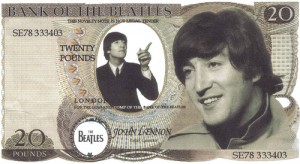

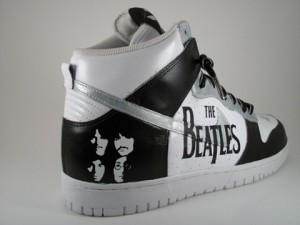
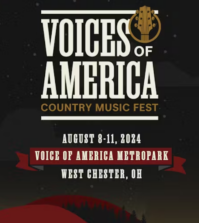





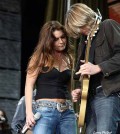
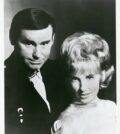








Pingback: Steve Hoffman Music Forums: The Beatles Revolution Nike Air shoes ad (1987) | RELAXING VIDEO